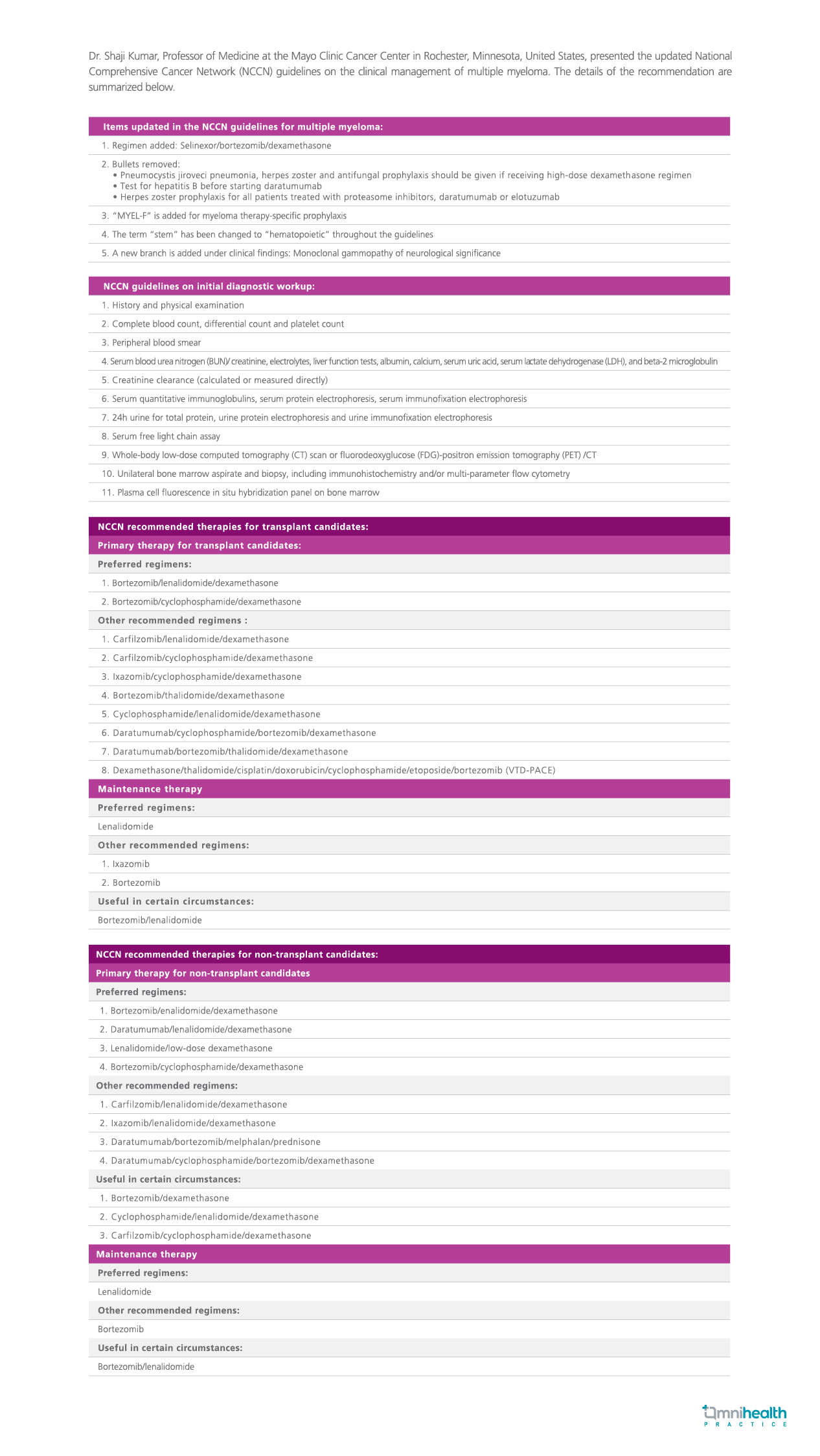A triplet combination induction therapy of lenalidomide, bortezomib and dexamethasone (RVd), followed by autologous stem cell transplantation (ASCT), and the lenalidomide (R) maintenance therapy, is the standard frontline regimen for transplant-eligible patients with newly diagnosed multiple myeloma (NDMM).1 Although the standard induction therapy may be efficient to a certain extent, novel strategies with higher efficacy and lesser toxicity are needed.
GRIFFIN is a randomized phase 2 study examining the efficacy and safety of daratumumab (DARA) + RVd (D-RVd) as an induction therapy, with the aim of improving the stringent complete response (sCR), minimal residual disease (MRD) negativity, progression-free survival (PFS), and overall survival (OS) in transplant-eligible NDMM patients.1 The patients received 4 D-RVd or RVd induction cycles (21-cycles), 2 D-RVd or RVd consolidation cycles following a high-dose therapy with ASCT, and R maintenance therapy with lenalidomide (28-cycles) alone or with DARA.1
The subgroup analysis of patients indicated that a treatment regimen integrating D-RVd during induction, consolidation and R maintenance, when combining with ASCT, was clinically effective.1 An improved depth of response was evident through sCR rates and MRD negativity rates.1 Although results showed a certain favorability towards D-RVd, larger studies with more patients may be required to obtain conclusive data.

